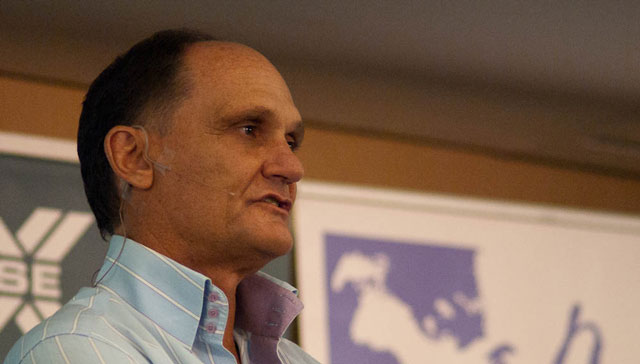
Mobile operator Cell C is lobbying the Independent Communications Authority of South Africa (Icasa) to delay the reduction in wholesale mobile termination rates on 1 March so that an “urgent market review” can be done to determine the effectiveness of the regulations.
“In order to increase competition and to bring down the cost to communicate, which will ultimately benefit consumers, Cell C’s view is that there needs to be significant further reductions [in the rates] for the dominant operators as well as significant and sustained ‘asymmetry’ for smaller operators, until they achieve a competitive degree of scale,” Cell C spokesman Karin Fourie says in an e-mailed response to questions from TechCentral.
Mobile termination rates are the fees cellular operators charge each other to carry calls between their networks. They have been coming down on a three-year glide path and are due to be reduced to 40c/minute on 1 March.
At the same time, smaller operators Cell C and 8ta have enjoyed “asymmetry” in the rates, whereby bigger rivals Vodacom and MTN pay them more than the other way around. This asymmetry was set at 20% at the start of the glide path, but was reduced to 15% and is set to be reduced to 10% at the beginning of next month.
Cell C says it has asked Icasa to retain the current termination rates pending the outcome of the urgent market review it’s seeking. “We are concerned that if the mobile termination rate drops to the proposed 44c rate for mobile operators without significant market power on 1 March 2013, then the ratio of asymmetry that smaller operators require to compete effectively with the dominant incumbents will not thereafter be realised,” Fourie says.
Amid enormous political pressure about four years ago, Icasa intervened to reduce termination rates in an effort to encourage greater competition in the mobile sector. The authority has said it will decide after 1 March’s rate cut whether the rates need to be cut again.
MTN has spoken out strongly against asymmetry for Cell C in the past. In 2010, MTN South Africa MD Karel Pienaar said giving Cell C this advantage, 10 years after it had been licensed, was “not fair”.
“To give Cell C an advantage at this late stage I don’t think is very fair,” Pienaar said at the time.
Knott-Craig, meanwhile, has been lobbying hard for a further reduction in termination rates. Last year, in an interview with TechCentral, he suggested the rate should be reduced to 25c/minute to facilitate further price competition in the mobile industry. Even then, he said, 25c “may be too high”.
Knott-Craig said at the time that asymmetric termination rates had played a role in Cell C’s decision to slash retail tariffs to 99c/minute on per-second billing. He said he wanted the company to continue enjoying asymmetry because it would help it “achieve the scalability we need to compete even more fiercely with the large incumbents”.
He argued that any operator with less than 20% market share — Cell C’s is about 13% — should enjoy beneficial asymmetric termination rates. Anything less than 20% would not have the desired results, he said. — (c) 2013 NewsCentral Media




